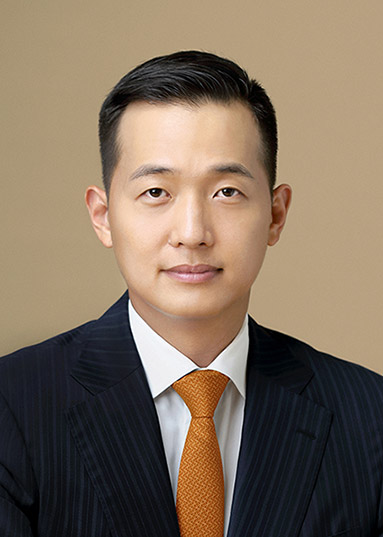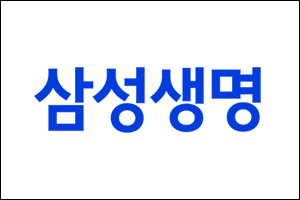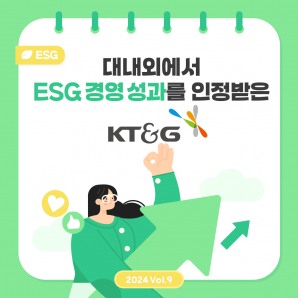
▲ Vice Chairman Kim Dong-kwan of Hanwha Group
Unlike performance-based pay that is paid in cash, RSUs are a long-term performance-based compensation system that grants stocks after a certain period of time. Among domestic listed companies, Hanwha Group was the first to introduce this system in 2020.
Vice Chairman Kim Dong-kwan received RSUs from Hanwha Corporation, Hanwha Solutions, and Hanwha Aerospace. To date, he has received 770,922 shares of Hanwha Corporation, 573,658 shares of Hanwha Solutions, and 151,940 shares of Hanwha Aerospace.
Hanwha Corporation received RSUs for the past five years from February 2020, when the system was introduced, to February of this year. It received 30,836 shares in the first year and 136,972 shares in January of the following year. It received 191,698 shares in 2022, 166,004 shares in 2023, and 239,492 shares in February of this year.
Hanwha Solutions also received 49,612 shares in 2020, 80,822 shares in 2021, 170,112 shares in 2022, 96,202 shares in 2023, and 177,360 shares in 2024. Hanwha Aerospace received 18,530 shares in 2021, 20,926 shares in 2022, 65,002 shares in 2023, and 47,482 shares in 2024.
In the case of the CEO, the stocks can be received 10 years after the RSU grant date. Vice Chairman Kim Dong-kwan is the CEO of the strategic division of three affiliates. Therefore, he won't be able to receive the RSU until 2030.
Also, only 50% of RSU can be received as stocks, and the remaining half is received as stock-linked cash. This is because if all of them are paid in stocks, the market may sell stocks in large quantities to pay comprehensive income tax, which could damage minority shareholders. Since most cash is subject to withholding tax, there is almost no cash actually received.
Stock value (hereinafter referred to as stock price) is granted based on common stocks, and the reference stock price is determined by the average closing price for the month of December of the previous year. When calculated at the average closing price of Hanwha Corporation last month, KRW 28,493, the price of 385,496 shares, half of the 770,992 shares received as Hanwha Corporation RSUs, is approximately KRW 11 billion.
During the same period, the average closing price of Hanwha Solutions was KRW 18,241, and that of Hanwha Aerospace was KRW 375,262. If this is applied to each half of the RSU, Hanwha Solutions will receive KRW 5.2 billion and Hanwha Aerospace will receive KRW 28.5 billion. As of now, the three companies will receive a total of KRW 44.7 billion worth of stocks.
Shin Haeju (hjs0509@fntimes.com)



























![[삼성전자의 와신상담] ③ 8년간 묵혀둔 곳간 올핸 열릴까?...삼성전자 초대형 M&A 가능성](https://cfnimage.commutil.kr/phpwas/restmb_setimgmake.php?pp=006&w=69&h=45&m=5&simg=202504021558020204074925877362115218260.jpg&nmt=18)
![[단독] 대우건설 자회사 대우에스티, 지난해 공정위·서울시 제재](https://cfnimage.commutil.kr/phpwas/restmb_setimgmake.php?pp=006&w=69&h=45&m=5&simg=2025040212332508946e41d7fc6c2183101242202.jpg&nmt=18)
![[현장] 지브리 프사 말고 ‘새로구미’ 어때?…압구정 뜨는 '새로도원' 가보니](https://cfnimage.commutil.kr/phpwas/restmb_setimgmake.php?pp=006&w=69&h=45&m=5&simg=20250402115241068616febc6baa62115218260.jpg&nmt=18)



















![[카드뉴스] KT&G ‘Global Jr. Committee’, 조직문화 혁신 방안 제언](https://cfnimage.commutil.kr/phpwas/restmb_setimgmake.php?pp=006&w=298&h=298&m=1&simg=202503261121571288de68fcbb3512411124362_0.png&nmt=18)


![[카드뉴스] 국립생태원과 함께 환경보호 활동 강화하는 KT&G](https://cfnimage.commutil.kr/phpwas/restmb_setimgmake.php?pp=006&w=298&h=298&m=1&simg=202403221529138957c1c16452b0175114235199_0.png&nmt=18)
![[카드뉴스] 신생아 특례 대출 조건, 한도, 금리, 신청방법 등 총정리...연 1%대, 최대 5억](https://cfnimage.commutil.kr/phpwas/restmb_setimgmake.php?pp=006&w=298&h=298&m=1&simg=20240131105228940de68fcbb35175114235199_0.jpg&nmt=18)
![[신간] 리빌딩 코리아 - 피크 코리아 극복을 위한 생산성 주도 성장 전략](https://cfnimage.commutil.kr/phpwas/restmb_setimgmake.php?pp=006&w=81&h=123&m=5&simg=2025032814555807705f8caa4a5ce12411124362.jpg&nmt=18)
![[신간] 지속 가능 경영, 보고와 검증](https://cfnimage.commutil.kr/phpwas/restmb_setimgmake.php?pp=006&w=81&h=123&m=5&simg=2025011710043006774f8caa4a5ce12411124362.jpg&nmt=18)
![[서평] 추세 매매의 대가들...추세추종 투자전략의 대가 14인 인터뷰](https://cfnimage.commutil.kr/phpwas/restmb_setimgmake.php?pp=006&w=81&h=123&m=5&simg=2023102410444004986c1c16452b0175114235199.jpg&nmt=18)

![[신간] 똑똑한 금융생활...건전한 투자와 건강한 재무설계 지침서](https://cfnimage.commutil.kr/phpwas/restmb_setimgmake.php?pp=006&w=81&h=123&m=5&simg=2025031015443705043c1c16452b012411124362.jpg&nmt=18)

![[카드뉴스] KT&G ‘Global Jr. Committee’, 조직문화 혁신 방안 제언](https://cfnimage.commutil.kr/phpwas/restmb_setimgmake.php?pp=006&w=89&h=45&m=1&simg=202503261121571288de68fcbb3512411124362_0.png&nmt=18)
![[AD] 기아, 혁신적 콤팩트 SUV ‘시로스’ 세계 최초 공개](https://cfnimage.commutil.kr/phpwas/restmb_setimgmake.php?pp=006&w=89&h=45&m=1&simg=2024123113461807771f9c516e42f12411124362.jpg&nmt=18)
![[AD] 아이오닉5 '최고 고도차 주행 전기차' 기네스북 올랐다...압도적 전기차 입증](https://cfnimage.commutil.kr/phpwas/restmb_setimgmake.php?pp=006&w=89&h=45&m=1&simg=2024123113204707739f9c516e42f12411124362.jpg&nmt=18)




